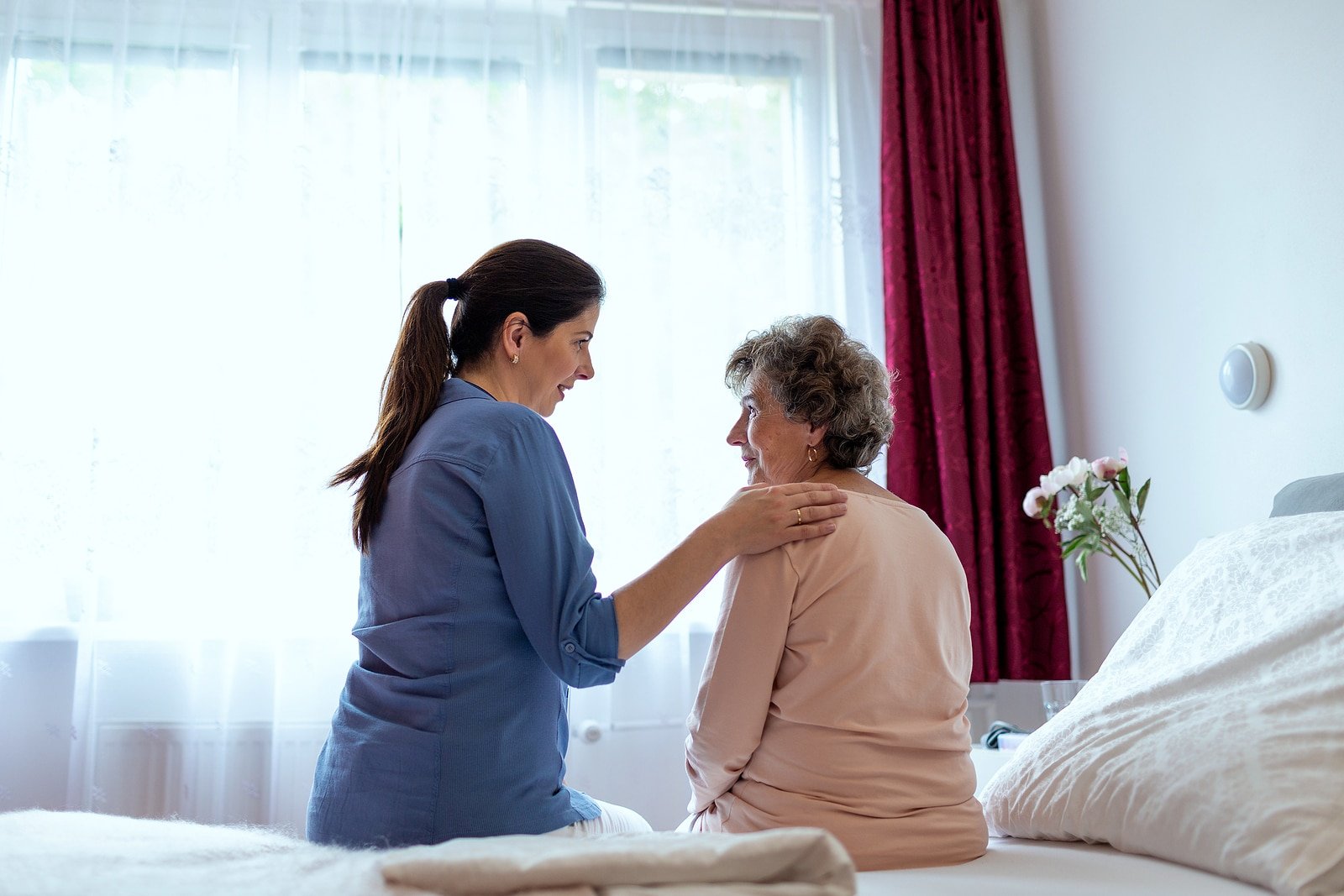
August 30 is National Grief Awareness Day. This day is set aside as a reminder that grieving is a natural process and to offer support to those who are grieving or trying to help someone who is grieving.
If you are caring for an elderly loved one, the likelihood that someone they love has passed away is great. Whether they’ve lost a sibling, a spouse, a friend, a pet or all of the above, your loved one has probably grieved, but sometimes, grief hits especially hard and as a person caring for their elderly loved one, you may just want to be able to step in and make everything okay again, but before you rush in, you must allow your loved one to grieve as needed.
Why Grieving is Important
Grief is a natural process for someone who has lost someone important to them. It’s a complex process that involves emotional, physical, spiritual, and social elements. Grieving is often the first pivotal step to adapting to a new reality in which the person or beloved pet is no longer a part of a person’s life, and cannot be relied upon for comfort, companionship, or conversation. Without proper grieving, many people are unable to process these important emotions of loss and get stuck in a certain point in time that is forever marked by pain and loss.
Supporting a Grieving Loved One
Everyone grieves differently, so knowing how to support your loved one can sometimes be difficult. Many elderly individuals aren’t comfortable sharing their feelings, and when asked how they are doing, will simply say “I’m fine.” As a caregiver, it’s important to hear and honor their requests but to also read between the lines and find ways to quietly support them if needed. Here are four ways you can support a grieving loved one.
- Be there. Whether it’s calling more often or visiting more often, your loved one may need more human contact right now.
- Don’t be afraid to ask about the person they are missing. Ask them to share a favorite memory with that person or open up an old photo album to look at photos. If you have videos, watch them together.
- Help around the home. They may be too emotionally spent to make a meal or fold the laundry. Step in and help as needed.
- Don’t rush healing. Allow them to process their loss at a speed that is comfortable for them.
Getting Grief Support
Sometimes caregivers struggle with providing grief support because they are grieving as well. This can be especially true when the person who passed away was close to both the caregiver and their elderly loved one, and their grieving processes differ. If you are grieving as well, finding someone to provide companion care at home for your grieving parent may be just what your loved one needs as she grieves. A companion care at home provider can sit with your loved one in her grief and support her emotions without having their emotions and hurt triggered, like a family member might experience in the same situation.
When your loved one has the support and care from someone else offering her companion care at home, she can grieve as she needs to, while you rest and grieve as you need to.


